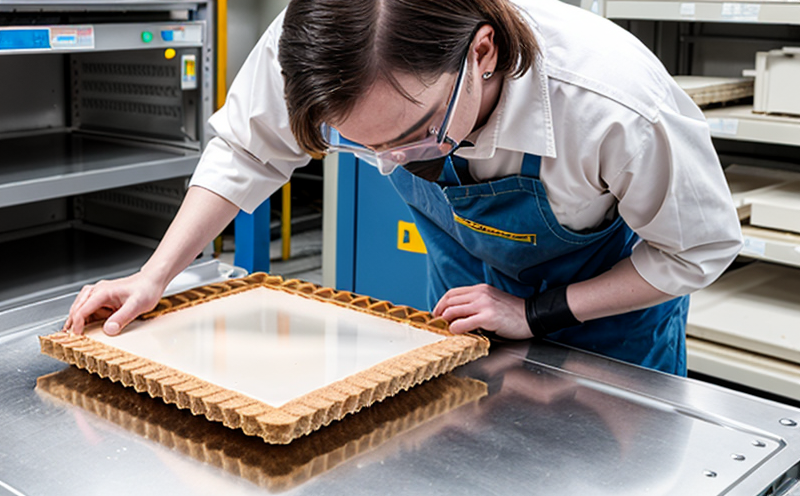ASTM F1309 Wafer Dielectric Property Characterization Testing
The ASTM F1309 standard provides a comprehensive approach to evaluating dielectric properties of wafers, which is crucial for the semiconductor and microchip manufacturing sector. This testing ensures that the insulating layers within silicon wafers meet required specifications for performance and reliability.
Dielectric properties are vital in determining how well an insulator can separate charges and prevent current leakage within integrated circuits. These tests are conducted on various types of substrates used in semiconductor production, including silicon, sapphire, and gallium nitride (GaN).
The ASTM F1309 method measures the capacitance per unit area of a dielectric material as a function of frequency. This measurement is achieved by applying an alternating voltage to the sample and measuring the resulting current. The procedure allows for detailed analysis of the electrical properties that are critical for the design, manufacturing, and quality assurance of semiconductor devices.
In this testing process, the wafer is first prepared according to specified guidelines in ASTM F1309. This includes cleaning the surface to remove any contaminants which could affect test results. Then, a known capacitance probe is placed on the wafer, followed by applying an alternating voltage across it while monitoring the resulting current.
The testing setup typically involves sophisticated instrumentation that can handle frequencies ranging from DC up to several hundred MHz. The data collected during this process provides insight into the dielectric losses and effective permittivity of the material under test. This information is essential for ensuring compliance with industry standards and specifications set forth by manufacturers like Intel, AMD, or Apple.
Compliance with ASTM F1309 ensures that all wafers undergo rigorous evaluation before being used in production lines. By adhering strictly to these procedures, laboratories can guarantee high-quality output while meeting stringent regulatory requirements imposed on the semiconductor industry worldwide.
Failure to comply could lead to issues such as improper electrical connections or poor performance of integrated circuits resulting from substandard insulating layers between transistors and other components within chips. Ensuring strict adherence to ASTM F1309 helps prevent these problems by providing accurate data about dielectric properties which are used during design iterations and manufacturing processes.
Furthermore, understanding the dielectric behavior of wafers allows manufacturers to optimize their designs for better energy efficiency and reduced heat generation within devices. This optimization is particularly important given today's trend towards more powerful but also smaller and faster processors that consume less power without sacrificing performance.
Applied Standards
| Standard Number | Description |
|---|---|
| ASTM F1309-18 | Standard Test Method for Determination of Dielectric Properties by AC Impedance Spectroscopy. |
| ISO 7642:1995 | Specification for Silicon Wafers for Integrated Circuits. |
Eurolab Advantages
At Eurolab, our expertise lies in delivering accurate and reliable ASTM F1309 testing services. Our state-of-the-art facilities equipped with advanced instrumentation ensure precise measurements of dielectric properties across a wide range of frequencies.
We employ highly skilled technicians who are trained specifically on this standard to conduct tests according to its prescribed procedures. This ensures consistency in results, which is critical for maintaining quality control standards throughout the semiconductor industry.
Our laboratory adheres strictly to all relevant international standards including ASTM F1309-18 and ISO 7642:1995 when performing these tests. By doing so, we provide assurance that every wafer tested meets not only internal company specifications but also external regulatory requirements.
In addition to providing accurate test results, Eurolab offers additional services such as consultation on best practices for preparing samples before testing and recommendations based on our findings regarding potential improvements in manufacturing processes or design adjustments needed to achieve optimal performance from wafers used in semiconductor production.
Customer Impact and Satisfaction
- Ensures compliance with industry standards set by ASTM F1309-18 and ISO 7642:1995, thereby reducing risks associated with non-compliance penalties or product recalls.
- Provides valuable insights into dielectric properties that help manufacturers improve their products' efficiency and reliability.
- Facilitates better communication between suppliers and buyers by providing consistent test results across different laboratories.
- Promotes continuous improvement in manufacturing processes through feedback derived from testing outcomes.





